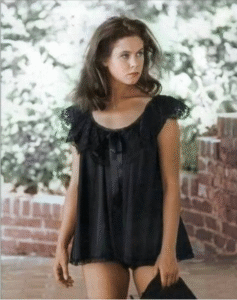Everyone Was Taken Aback by Elizabeth Montgomery’s Sudden Death
When the world learned of Elizabeth Montgomery’s death in 1995, disbelief rippled through Hollywood and beyond. For millions who had grown up watching her twitch her nose and work a little magic as Samantha Stephens on Bewitched, the news felt impossible. Montgomery had seemed timeless — graceful, radiant, and endlessly charming — the kind of performer whose warmth made audiences feel like they truly knew her.
Her sudden passing at just 62 years old stunned fans who remembered her as one of television’s most beloved figures. Yet behind that shock lay the story of a woman who, throughout her life, balanced the glitter of fame with a deep yearning for authenticity and artistic respect.
From Hollywood Royalty to Television Stardom
Born on April 15, 1933, Elizabeth Victoria Montgomery came into the world already steeped in show business. Her father, Robert Montgomery, was a major film star of the 1930s and ’40s, while her mother, Elizabeth Allen, was a Broadway actress. The stage lights called to her early, and after attending the Spence School in New York and later the American Academy of Dramatic Arts, she made her television debut on her father’s anthology series, Robert Montgomery Presents.
Audiences were immediately drawn to her poise and natural charisma. By the late 1950s, she had made her mark on Broadway and appeared in numerous live TV dramas, earning respect for her versatility and subtlety. But it was Bewitched, premiering in 1964, that would change her life forever.
A Magical Role — and a Cultural Touchstone
As Samantha Stephens, the witch who marries a mortal man and tries to live a normal suburban life, Montgomery became the face of one of television’s most enduring comedies. With its blend of fantasy, humor, and heart, Bewitched became a cultural phenomenon, running for eight seasons and earning Montgomery five Emmy nominations.
Her portrayal of Samantha — intelligent, kind, and quietly defiant — resonated deeply with viewers. In many ways, Samantha reflected the changing times. The 1960s were years of transformation, and Montgomery’s character embodied a modern woman’s desire for both love and independence. The show’s gentle humor often disguised progressive themes about equality, individuality, and female empowerment.
Behind the scenes, Montgomery worked tirelessly. She was more than just the show’s star; she was its heart, shaping storylines and guiding tone. Her chemistry with co-stars — particularly Dick York, and later Dick Sargent — helped make the series one of the defining sitcoms of its era.
Beyond Bewitched: A Serious Actress Emerges
After Bewitched ended in 1972, Montgomery faced the challenge of redefining her career. Determined to shed the image of the “cute TV witch,” she turned toward serious dramatic roles. In a bold move, she starred in made-for-TV films that tackled complex and often controversial subjects.
Her performance in “A Case of Rape” (1974) shocked audiences with its realism and helped spark national conversation about sexual violence and justice. She later took on the chilling role of Lizzie Borden in The Legend of Lizzie Borden (1975), earning critical acclaim and another Emmy nomination.
Throughout the 1980s and early 1990s, Montgomery continued to deliver powerful performances, choosing roles that showcased her emotional depth. Her work in The Awakening Land and Amos demonstrated not only her dramatic range but also her quiet courage in tackling subjects that mattered.
The Private Elizabeth Montgomery
Despite her fame, Montgomery guarded her privacy carefully. Those close to her described her as warm, witty, and down-to-earth, preferring quiet dinners and family time over Hollywood parties. She was married four times and had three children, who remained the center of her world.
She also became known for her compassion and activism. Montgomery supported a range of humanitarian causes, including the AIDS Project Los Angeles, Amnesty International, and children’s charities. Friends recalled her generosity and the empathy she showed toward anyone in need.
The Shocking News
In early 1995, Montgomery was diagnosed with colon cancer. The diagnosis came as a surprise even to those close to her — she had kept her health struggles largely private. Only a few weeks later, on May 18, 1995, she passed away peacefully at her home in Beverly Hills, surrounded by her husband, actor Robert Foxworth, and her children.
Her death was sudden not because of the manner of her passing, but because of how swiftly it came. Fans and colleagues alike were blindsided. Many had seen her on screen just months earlier, vibrant and full of life. When word spread, tributes poured in from around the world.
A Legacy That Endures
In the years since her death, Elizabeth Montgomery’s legacy has only grown stronger. Bewitched remains in syndication, introducing new generations to her charm. Beyond the nostalgia, her work continues to influence how television portrays women — as multidimensional, independent, and powerful in quiet ways.
She also opened the door for many actresses to transition from light comedy to serious drama, proving that television performers could command depth and respect. More importantly, she remains a symbol of grace and integrity in an industry that often forgets both.
Even decades later, her smile, her wit, and that famous nose twitch still bring comfort to fans who grew up watching her. To them, she’s not just a star from a bygone era — she’s a reminder of television’s golden heart.
Remembering Elizabeth
Elizabeth Montgomery once said in an interview:
“The magic was never really in Samantha’s powers — it was in her kindness. That’s what people remember.”
Perhaps that’s why her passing felt so shocking. The world lost more than an actress; it lost a rare kind of presence — someone who made the extraordinary feel ordinary, and the ordinary feel a little more magical.
Today, as Bewitched reruns flicker across screens, her legacy endures — a spell that time itself has never managed to break.


